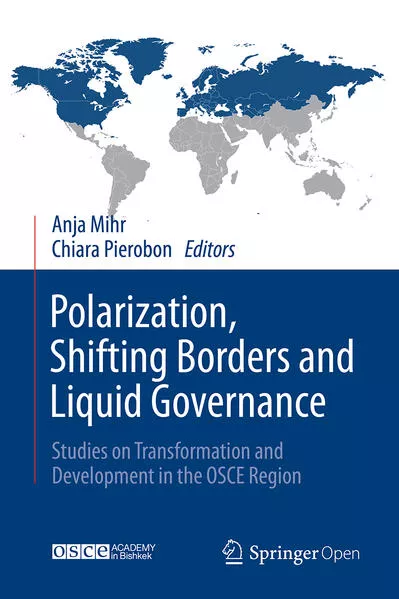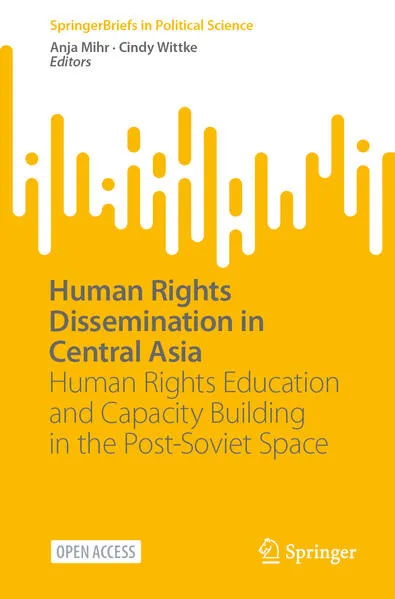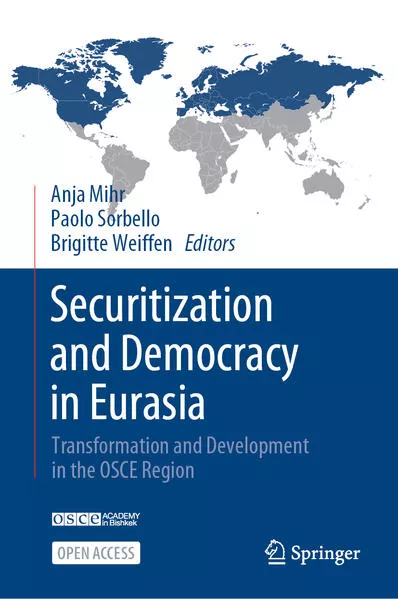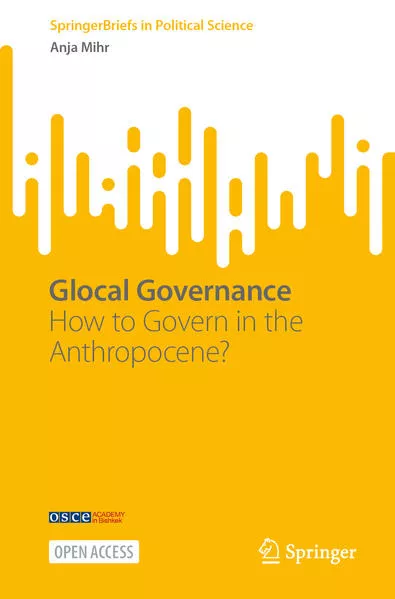
- Publikationen ca: 10
- Buchbewertungen ca: 2
- Fragen & Antworten
Anja Mihr
Anja Mihr is DAAD Associate Professor at the OSCE Academy in Bishkek, Kyrgyzstan. She is Professor of Human Rights, Governance, Public Policy and Transitional Justice. Anja is also Founder and Program Director of the HUMBOLDT-VIADRINA Center on Governance through Human Rights in Berlin in Germany.
Polarization, Shifting Borders and Liquid Governance
This open-access book explores the security dynamics amid the polarization, shifting borders, and liquid governance that define the Zeitenwende era in Europe's eastern neighbourhood and Central Asia. Presenting various case studies, the volume unveils the intricate web of border dynamics and practices, including the nuanced interplay of border disputes within the Organization for Security and Cooperation in Europe (OSCE) member states.
Polarization, Shifting Borders and Liquid Governance
This open-access book explores the security dynamics amid the polarization, shifting borders, and liquid governance that define the Zeitenwende era in Europe's eastern neighbourhood and Central Asia. Presenting various case studies, the volume unveils the intricate web of border dynamics and practices, including the nuanced interplay of border disputes within the Organization for Security and Cooperation in Europe (OSCE) member states.
Polarization, Shifting Borders and Liquid Governance
This open-access book explores the security dynamics amid the polarization, shifting borders, and liquid governance that define the Zeitenwende era in Europe's eastern neighbourhood and Central Asia. Presenting various case studies, the volume unveils the intricate web of border dynamics and practices, including the nuanced interplay of border disputes within the Organization for Security and Cooperation in Europe (OSCE) member states.
Human Rights Dissemination in Central Asia
This open access book explores the field of human rights dissemination in Central Asia. Offering a comparative perspective on five post-Soviet Central Asian states—Kazakhstan, Kyrgyzstan, Uzbekistan, Turkmenistan, and Tajikistan, it examines compliance with international human rights standards in these countries.
Human Rights Dissemination in Central Asia
This open access book explores the field of human rights dissemination in Central Asia. Offering a comparative perspective on five post-Soviet Central Asian states—Kazakhstan, Kyrgyzstan, Uzbekistan, Turkmenistan, and Tajikistan, it examines compliance with international human rights standards in these countries.
Securitization and Democracy in Eurasia
This open-access book presents cutting-edge research on securitization and democratic development in the OSCE Region. Gathering contributions by practitioners and researchers from various disciplines, it presents case studies and highlights recent activities of proactive engagement in democratic institution-building and responding to security threats from the Balkans to Central Asia.
Securitization and Democracy in Eurasia
This open-access book presents cutting-edge research on securitization and democratic development in the OSCE Region. Gathering contributions by practitioners and researchers from various disciplines, it presents case studies and highlights recent activities of proactive engagement in democratic institution-building and responding to security threats from the Balkans to Central Asia.
Securitization and Democracy in Eurasia
This open-access book presents cutting-edge research on securitization and democratic development in the OSCE Region. Gathering contributions by practitioners and researchers from various disciplines, it presents case studies and highlights recent activities of proactive engagement in democratic institution-building and responding to security threats from the Balkans to Central Asia.
Glocal Governance
This open access book develops a conceptual framework for glocal governance as a multi-stakeholder local governance approach based on global human rights norms and democratic principles. It discusses glocal governance as part of an ongoing global transformation process that began in the 1990s, when democracy and individualizing responsibilities for governance became the dominant political system worldwide, and continues through today’s dawn of a New Cold War between those countries which have democratized and those which haven’t.
Glocal Governance
This open access book develops a conceptual framework for glocal governance as a multi-stakeholder local governance approach based on global human rights norms and democratic principles. It discusses glocal governance as part of an ongoing global transformation process that began in the 1990s, when democracy and individualizing responsibilities for governance became the dominant political system worldwide, and continues through today’s dawn of a New Cold War between those countries which have democratized and those which haven’t.









